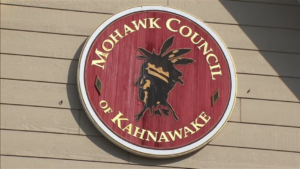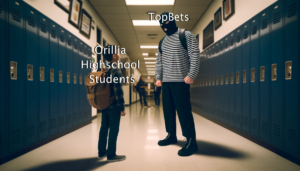In this week’s GME3 we’re examining new information revealed in the Shohei Ohtani-Ippei Mizuhara gambling embezzlement scandal, an official probe into Meta being launched by the European Union, and the outcome of the TikTok ban in the U.S. Find the full stories below!
Gambling
A Batter-y of Gambling Charges
New information has come to light concerning the Shohei Ohtani-Ippei Mizuhara gambling embezzlement scandal. We now have a much better understanding of the path that the money took after it was transferred out of Ohtani’s bank account.
Mizuhara, former translate for Ohtani, has been accused of stealing $16 million from the baseball star over a 2-year period in order to pay off his substantial gambling debts. He would transfer the money in $500 thousand increments to an associate of his bookmaker, Matthew Bowyer, who would then deposit the funds into accounts at Resorts World, a casino that operates out of Las Vegas. From there, the bookmaker would withdraw chips from the account, gamble with them, and cash out any winnings. Bowyer has been found to have lost over $7.9 million at Resort World between June 2022 and October 2023.
According to authorities, Bowyer’s bookmaking operation is pretty impressive – Mizuhara was only one of over 600 bettors placing bets through Bowyer. Federal authorities have revealed that the former translator ran up over $40.7 million in debt to the bookie.
Sources have reported that Resorts World is currently at the centre of what federal authorities have described as “an investigation into illegal sports bookmaking organizations operating in Southern California, and the laundering of the proceeds of these operations through casinos in Las Vegas.” To date, twelve individuals have been charged or convicted in relation to the investigation, and two Vegas casinos have been subject to fines. Resort World was served a subpoena last August seeking documents related to its anti-money laundering policies, as well as other information.
A spokesperson for Resort World has reported that, in keeping with company policy, the casino will not be commenting on any ongoing legal matters, but the company does “take any suggestion of violations seriously and is cooperating with the ongoing investigation.”
Resort World opened in 2021 under the guidance of former president of MGM Grand Scott Sibella. Sibella had previously come under fire for his failure to file suspicious activity reports about another Southern California bookie, Wayne Nix. As a result, Sibella was fired from his position and could end up facing a maximum sentence of five years in prison and a $250,000 fine. Sentencing for Sibella is scheduled for May 8 in Los Angeles. Resort World has refused to reveal whether any suspicious activity reports were ever filed over Bowyer’s gambling at the casino.
Media
EU Unfriends Meta
The European Union has launched an official disinformation probe into Meta, under suspicion that the social media giant has breached the bloc’s online content rules.
The EU’s Digital Services Act (DSA) came into force last year and requires tech firms to do more to counter the proliferation of illegal or otherwise harmful content on social media platforms. This extends to misinformation, which is a crucial factor as Europe heads into several elections later this year.
The EU seems concerned that actors from nations external to Europe are attempting to influence election results. This comes after it was revealed that a Russian-sponsored network allegedly sought to influence the upcoming elections for the EU Parliament in June. Some anti-establishment parties are also accused of spreading disinformation as a method to increase their representation in the next EU parliament.
Meta has replied in an attempt to defend its risk-management process, claiming that they “have a well-established process for identifying and mitigating risks on our platforms [and] look forward to continuing our cooperation with the European Commission and providing them with further details of this work.” This is despite the fact that Meta recently retired CrowdTangle, the software it was using to track misinformation, with no replacement in place.
These companies must be in compliance with the DSA, or else risk fines of up to 6% of their global turnover, or even a ban from operating within the EU in extreme cases.
Entertainment
TikTok Block Shock
Unfortunately for teens across the country, the U.S. government has successfully passed its legislation to ban TikTok, unless the company gets sold to a government-approved buyer. ByteDance, TikTok’s parent company, has a year to comply with the order.
The justification for the ban is the potential danger of ByteDance, a Chinese-owned company, putting sensitive user data, such as location information, into the hands of the Chinese government. Additionally, some argue that the Chinese government could use TikTok to spread misinformation among Americans as they hurtle toward a presidential election this fall. America would not be the first country to ban the popular app – India banned TikTok in 2020, and many countries have banned the app from being downloaded on official devices due to potential security risks.
While ByteDance has a year before any action will be taken, it’s practically guaranteed that the ban will face significant legal challenges before being enacted fully. This is different from a private enterprise banning TikTok from a network they own and operate, and some argue that a sweeping ban may run into issues related to the First Amendment.
TikTok has consistently denied allegations of any wrongdoing, and have even gone so far as to call the ban “political theatre.” Some users have also expressed frustration at the Biden administration for passing this bill while simultaneously using TikTok as a means of connecting with voters. Whether or not the ban works in the end, we’ll definitely be hearing more about this story in the future.
GME Law is Jack Tadman, Zack Pearlstein, Lindsay Anderson, Daniel Trujillo, and Will Sarwer-Foner Androsoff. Jack’s practice has focused exclusively on gaming law since he was an articling student in 2010, acting for the usual players in the gaming and quasi-gaming space. Zack joined Jack in September 2022. In addition to collaborating with Jack, and with a keen interest in privacy law, Zack brings a practice focused on issues unique to social media, influencer marketing, and video gaming. Lindsay is the most recent addition to the team, bringing her experience as a negotiator and contracts attorney, specializing in commercial technology, SaaS services, and data privacy.
At our firm, we are enthusiastic about aiding players in the gaming space, including sports leagues, media companies, advertisers, and more. Our specialized knowledge in these industries allows us to provide tailored solutions to our clients’ unique legal needs. Reach out to us HERE or contact Jack directly at jack@gmelawyers.com if you want to learn more!
Check out some of our previous editions of the GME3 HERE and HERE, and be sure to follow us on LinkedIn to be notified of new posts, keep up to date with industry news, and more!




